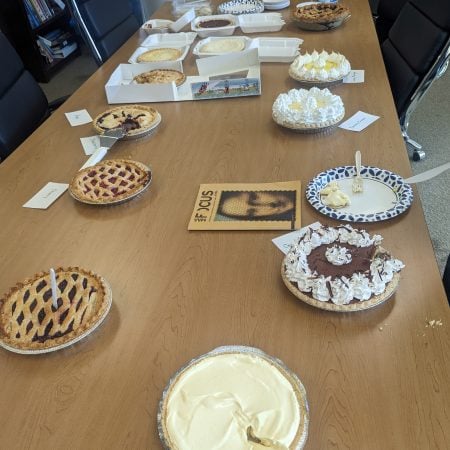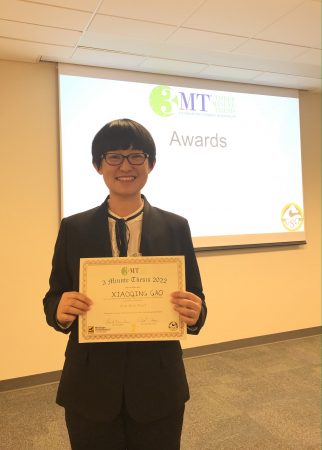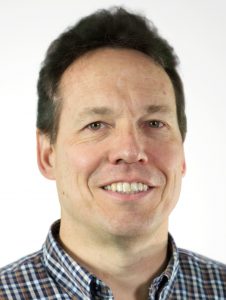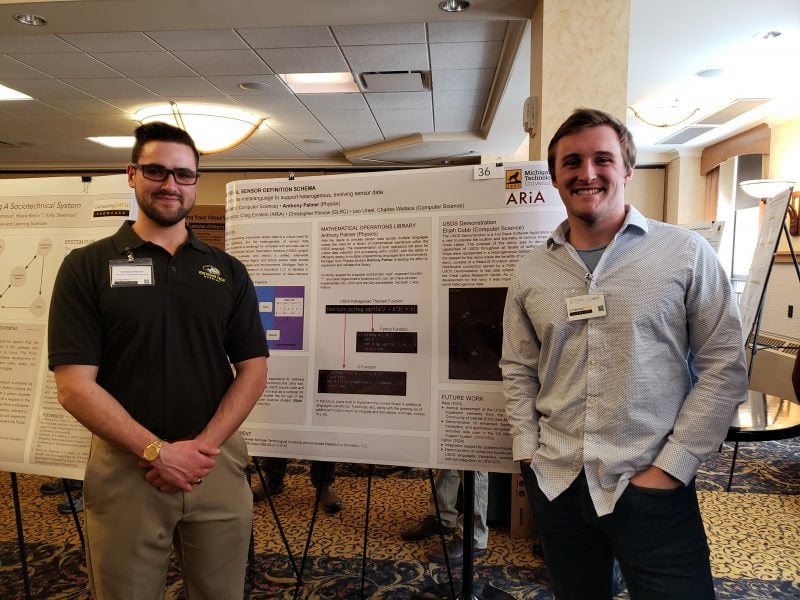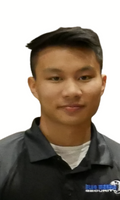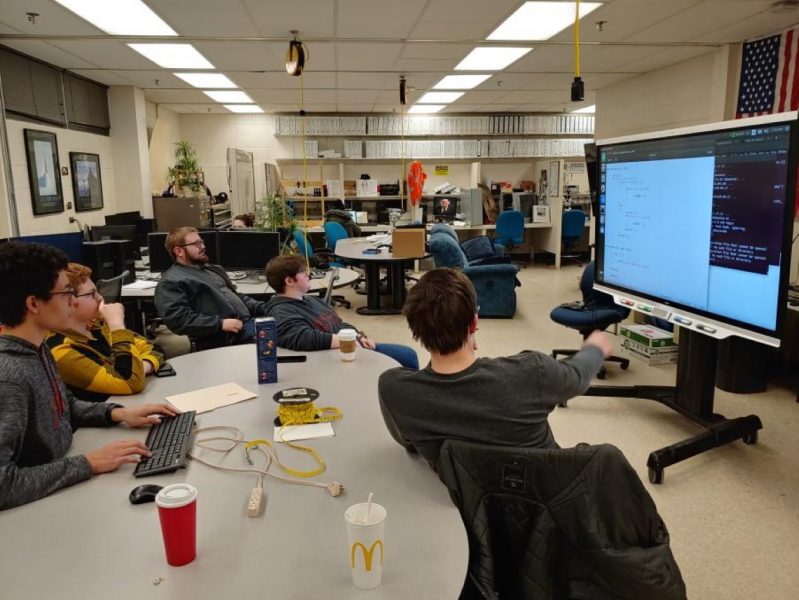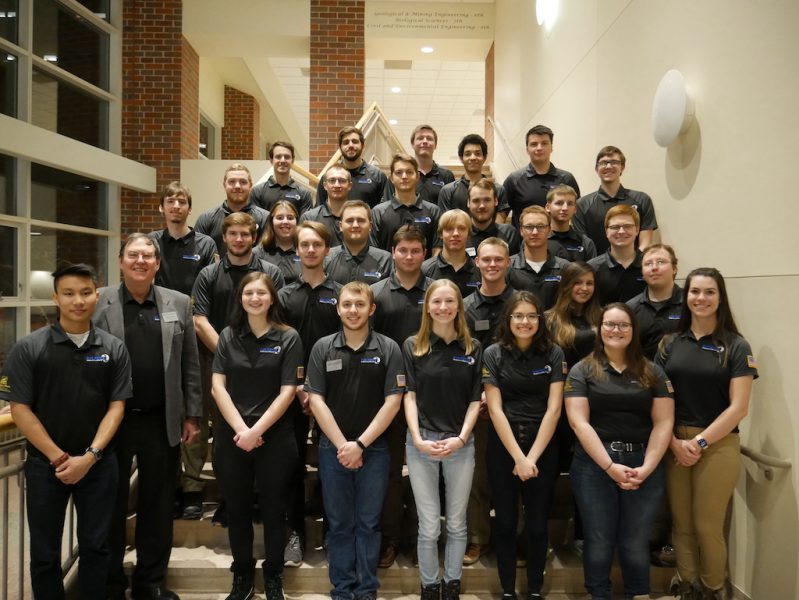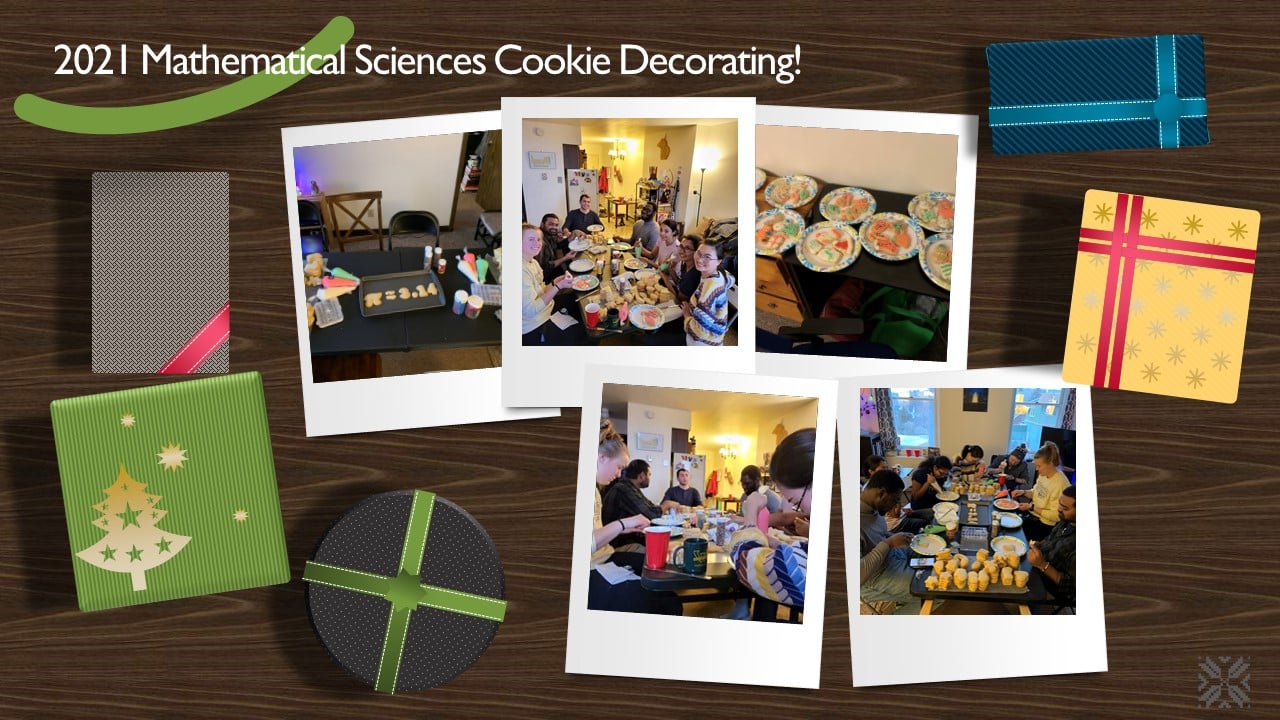Pi Day was celebrated in the Department of Mathematical Sciences on Tuesday, March 14 (3/14) at 1:59pm.
Are you starting to see a slight pattern here – 3.14159? Pi Day celebrations were held throughout the world on March 14 and we thought it would be fun to join in on the festivities.
As you probably already know, the Greek letter “Pi” is a mathematical symbol used to represent a constant. One of the most well known mathematical constants is the ratio of a circle’s circumference to its diameter. So, in keeping with the mathematical related theme, pie was served!
Several members of the faculty, staff and student body in the math department joined together on Pi Day to chow down on their favorite variety of that sweet, circular treat – PIE. As a matter of fact, a total of 12.14159 different selections of pie adorned a conference table in the math lounge for sampling.
Additionally, undergrad math majors were invited to participate in a very irrational game of Pi Bee. Here, students tested their memory by recording as many digits of pi they could remember – unassisted.
Many entries were submitted, but there could be only one winner. Eli DeWitt (General Mathematics major) provided a heaping total of 43 correct and consecutive digits. His sweet reward for such an outstanding memory was a gift card to the Campus Book Store.
We look forward to the infinite possibilities for future celebrations. Check out our Facebook page https://www.facebook.com/profile.php?id=100086619613325 to see some of the other interesting events taking place in the department.
